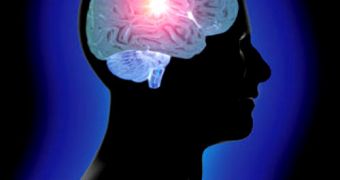Scientists have known for a long time that, as the human brain ages, it begins to gradually lose its ability to discern useful information from the massive batch of pieces of information making its way in every single day. Though this may seem like a bad thing at first, a new research demonstrates that this actually allows older people to “hyper-bind” extraneous information, without even knowing they are doing it.
The investigation, which was conducted by experts at the Baycrest Center for Geriatric Care (BCGC) Rotman Research Institute in Canada, seems to indicate that the elderly have a unique advantage over younger people in processing the data they collect from the environment. It was also revealed that when information was encoded in their brain, it was also hyper-bound to other, seemingly useless pieces of data, to create a more wide view of the things they were analyzing. Details of the work appear in this week's online issue of the respected scientific journal Psychological Science.
“We found that older brains are not only less likely to suppress irrelevant information than younger brains, but they can link the relevant and irrelevant pieces of information together and implicitly transfer this knowledge to subsequent memory tasks,” University of Toronto psychology PhD student Karen Campbell, who conducted the work under the supervision of Dr. Lynn Hasher, says. The expert is a Rotman senior scientist, and one of the foremost authorities in the world on attention and inhibitory functioning of the human brain, in both young and old people.
“This could be a silver lining to aging and distraction. Older adults with reduced attentional regulation seem to display greater knowledge of seemingly extraneous co-occurrences in the environment than younger adults. As this type of knowledge is thought to play a critical role in real world decision- making, older adults may be the wiser decision-makers compared to younger adults because they have picked up so much more information,” Hasher concludes.

 14 DAY TRIAL //
14 DAY TRIAL //